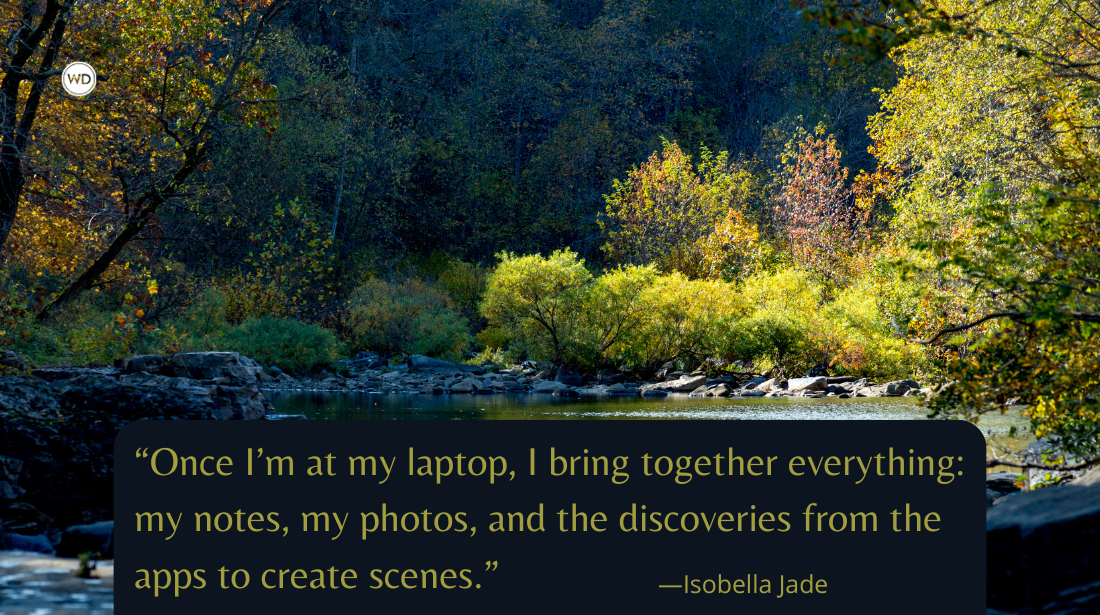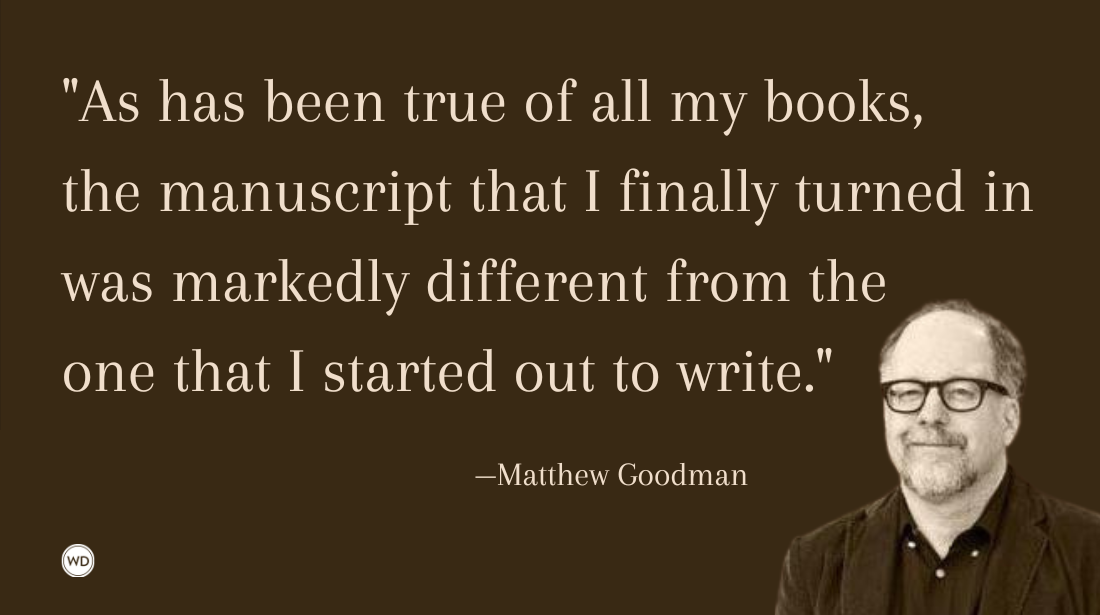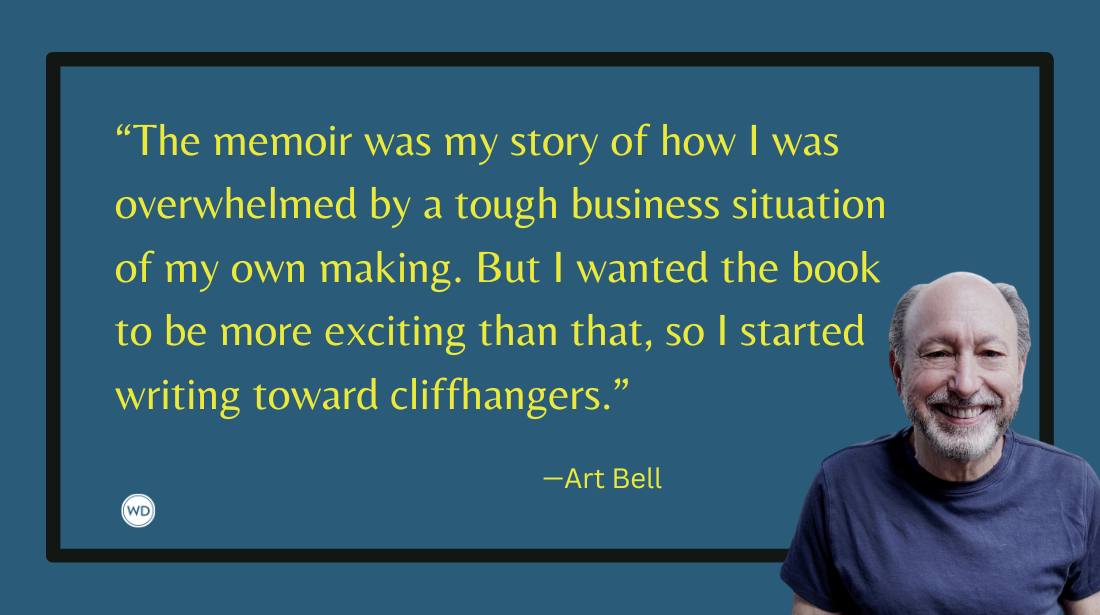The Writing Life Interview: Beryl Bainbridge
Beryl Bainbridge is the author of such historical novels as Master Georgie and Every Man for Himself (about the Titanic). She has an intriguing way of researching, and of feeding her imagination.
Writer's Digest: The big publicity of late has been Master Georgie and all the accolades it's received. The first thing that struck me about it was that it was this huge story is such a small space.
Beryl Bainbridge: I've always done short books. I write much more, but I throw it away because it's too much. I think it was Voltaire who wrote a letter to a friend and said, "I'm sorry this letter is so long. I didn't have time to make it shorter." I agree with that. I think you have to be sparse about it.
WD: How did you discipline yourself to keep your writing sparse?
BB: I don't know. I've always done that. For every page in a book, I write and least 12, and then think, "That's not necessary. Cut that out." I don't know why. I've always done that, right from the beginning.
WD: Is there advice you would give to writers who maybe are more guarded of their work and are afraid to do that kind of cutting?
BB: Well I was lucky. I had very good editorial input when I first began in the '70s. Obviously then, to throw away a page would have horrified me. But if your publisher says "no," then you don't need that. Then after a bit, you learn, so that's what you do.
WD: You've said that you don't focus so much on the historical events so much as the people and their personal lives, and I think that's what really brings it to life. For example, Every Man for Himself, where you wrote about the Titanic. How do you figure out how a story's going to fit into that historical framework?
BB: All the other books I wrote before were all about my childhood. None of them were made up. I knew exactly what I was doing because they were always my mother, my father, my brother, myself, my aunts, my uncles, but fictionalized. But I used that all up, you see, so I had to go on to something more historical. But once I'd gone on to the historical part of it, I decided the great thing to do was to be accurate, get absolutely so, like on the Titanic—know the ship backwards. But then, don't be obvious about it. Then I turn to make up the characters.
WD: All the research you do comes before you conceive the storyline or the characters that may be involved . . .
BB: Yes. From the Birthday Boys onwards, they're based totally on fact, so that dictates what you're going to do. With the last four, I still haven't really known what I'm doing. I know the plot—it's not that, but I have no idea. I could tell whether the other ones were any good. But with the last four, I've never been able to decide where it all came from and what I was doing.
WD: So much that happens outside of the historical context that you've developed. Where does that come from?
BB: If you go and look at paintings or at master's portraits, and you look at faces, whoever they are, there's always something of the painter in the face. They look like the person who painted it. I think with writing, it's exactly the same. You write the way you are, in a funny sort of way. Whatever imagination you've got . . . I don't really believe in the imagination; I think it's all a compound of everything's that happened to you right from birth. It's conversation, it's bits of music that you hear, so you remember all these details. I think there's one in Titanic somewhere, someone finds a little snow on the ground, on the ship or something. I can remember that happening to my father: finding snow along the deck of a sailboat in Liverpool. It's not imagination; it's something one remembers. It's all in the unconscious, and you just dredge it up out of your memory.
WD: I know you're a stickler for the research and adhering to the accuracy, but how did you learn to mimic the language from 100 or 150 years ago?
BB: I'll tell you what was a tremendous help: Webster's American Dictionary. The Oxford dictionary here is wonderful, but sometimes they don't give a date. If there was a word I wasn't sure could be used, I would look it up. But my father was born in 1889, and the language he spoke wasn't much different than his father's language, which gets you back to 1850. As long as you're careful about not using modern idioms, it's surprising how much you can use that actually did come from way back.
WD: Even though you're not drawing on your childhood experiences, there's still the linguistic aspect that you're getting from that and from your own heritage and ancestors.
BB: Some of the American reviews said that the author wasn't engaging enough with the characters, didn't explain them enough. For instance, in Master Georgie, I was writing like I was there at the time. You can't have hindsight about it. I can't say I was terribly upset about the bloodshed because in the middle of the bloodshed, you're not noticing that sort of thing. You have to experience it all together, and I like doing that. Also, I've been criticized because you really have to read it twice to get the sense of it. That's because I like using clues, but I hate being obvious.
WD: The amount of fact-checking and attention to detail that your books require is daunting. Can you take me through the steps in your research?
BB: Sure. It takes me a long time, it takes me about six months of reading. I get all the old-fashioned books I can find and the letters and whatnot. I'll even dip into things like Dickens to get an idea of the attitudes toward people. Then I forget that. Then I step back a bit, and I make lots of notes. Then I lose the notes, and I spend a lot of time looking at second-hand bookshelves because I can get books out of the London library, but I'm no good at just making pencil marks. I ruin the books by turning down the pages. I have to buy the books. Then I make little maps. The idea of where [the characters in Master Georgie, set during the Crimean War] they were: what Sebastopol looked like and where Balaklava was. I found that terribly difficult. And all the people: Turkey, and Constantinople, which is now Istanbul, that took me a long while. The worst part to get a hold of in my head were regiments. One minute it's a regiment, then it's a battalion, then it's a brigade. It was awful. You get to the point where you despair and suddenly, it becomes more clear. Then you check again to make absolutely sure. . . .
When I start, I usually take about four or five months to start and finish the book, and that's when I get completely immersed in it. I don't go out, and I just only see the children, I don't answer the telephone, I don't do anything. And I work day and night. I nap during the day, but then I'll just work around the clock. I don't understand people who work three hours in the morning, and then the day is up to them. I have to do 12 hours with a few naps, and then 12 hours in the night.
WD: How is it that you've become so dedicated? What is it about the writing?
BB: I was always like that. I think it was having children when I began, so I could only work in the night. And as they got older, you had to wait later and later till they came in, from wherever they'd been. And there's that elation about having done something.
WD: I know you did some work in the theater before you started. Did that help you in developing a sense of story or in creating scenes at all?
BB: I'd always written as a child, and I always had a so-called imagination. I went into the theater at 15, and it became a very different kind of education. I had never written play, I had never gone to a theater. I wasn't really interested in that. It was my mother who said I had to go to a theater because she was very shrewd—she realized that academically I wasn't going to do very much. Okay, I could do English, but that was about the lot of it. Being in the theater was like being in school. I was sent out to the library to get various books, I had to go to the art galleries to look at paintings. We went to other theaters when we didn't have a matinee of our own. It was jolly good training.
Also, you hope that the dialogue you eventually start to write is immediate and not repetitive. In a really good play no one explains anything. People talk across each other in a funny sort of way. Really the dialogue is just pointing towards things, I think, or pointing out character obviously. So yes, the theater was tremendously helpful.
WD: Do you think its influenced your earlier works as much as your historical novels?
BB: I think I've probably polished it up more, honed it more. In the early ones, what I was doing was . . . because it seemed to me not terribly interesting just to write about what happened to me as a child and as I grew up and everything, I used to go to newspapers and get a plot out of newspapers. I'd stick the plot in the middle of my life, and that was interesting. Some of the early ones were vaguely historical. I did one called The Young Adolf—the idea of a young Adolf Hitler having come to Liverpool, which I think was from Carroll & Graf. Then I did one about a 19th-century murderer, a schoolteacher, a clergyman, the real life story. So I've never called my books, especially my early ones, historical because they were about my own time. They weren't made up.
WD: You had mentioned that you did a lot of writing as a child. Did you always have ambitions to write?
BB: The background I grew up in was Liverpool. In those days, what my parents wanted for my brother and me was to be educated and rise up. So you didn't go out and play because you might meet "not very nice people," as my mother used to say. We didn't have television. We had the radio, and there was something called preferred programming in those days, which was very intellectual and used to be on in our house to drown out the sound of my father's shouting and bad tempers. We used to put that on so the neighbors wouldn't hear. So that was one grounding. Lots of the girls I knew—not boys but girls—they all wrote. We all wrote stories and things. The only difference was that I didn't write fairy stories and that sort of thing. I was writing subversively about my background all the time but changing it every now and then. But it was really the age of 10, 11, 12. I was writing about what was going on in the house and disguising it as much as possible. It was a kind of therapy I was doing, and that stood me in good stead. But I wasn't just writing on bits of paper. I was actually so-called writing books: 120, 140 pages.
WD: Do you find that it's harder to write characters that were living in the middle of the 18th century than it is to write about one living today?
BB: No, because I've been going backwards all the time. I now would find it very difficult to write about a modern-day person because I'm not modern-day. My children are all grown up, but I don't think I could write about their kinds of lives because the language is so different. I'm much comfier going backwards.
WD: What goes on between your research period and the four or five months you spend writing the book?
BB: A terrible sense of unease: Time's going by. I always say I'm half way through, and I haven't really begun. I panic, but you'll never get the right beginning. I can't ever go on to a page unless I've got the first paragraph absolutely right. Every now and then you write down a paragraph which will open a book—and it's never right. That starts up a terrible panic.
My children always say they can tell when I'm about to start writing because I don't listen to a word they say. They'll be talking to me, and I'll answer quite normally, but I'm not there.
WD: As you're wrapping up your research, does a tone occur to you? Do the characters start to appear?
BB: With Master Georgie I happened to stay with friends on the Isle of Wight, which is an island off Portsmouth. At a photographic museum there was a woman called Margaret Cameron. There was this amazing portrait, a black-and-white portrait of the girl. On the back of the photograph, it explained about her: She had been married three times-she was 24-it didn't say that her husband had died, and this was 18-something. She had finally run away to sea, and then she died of typhoid, all by the time she was 27. So I bought a postcard of it, and that was Myrtle. That was one way of getting a character.
But every time I finish a book, I forget how to write the next one. I cannot remember how I did it. I get panicky. I think, "Surely one's used up all the words. How can I do it again?" It's not till I get hooked and start again properly that I suddenly think, "Ah, that's how it's done!"
WD: Is being a grandmother compatible with being a writer? Do you have less time to write than you used to?
BB: They take up an awful lot of time, but they're beautiful. There are six of them now, two for each of my children. Work that out if you're going to baby-sit. You can't take up three nights a week. But it's worth it.
This article appeared in the June 1999 issue of Writer's Digest.








